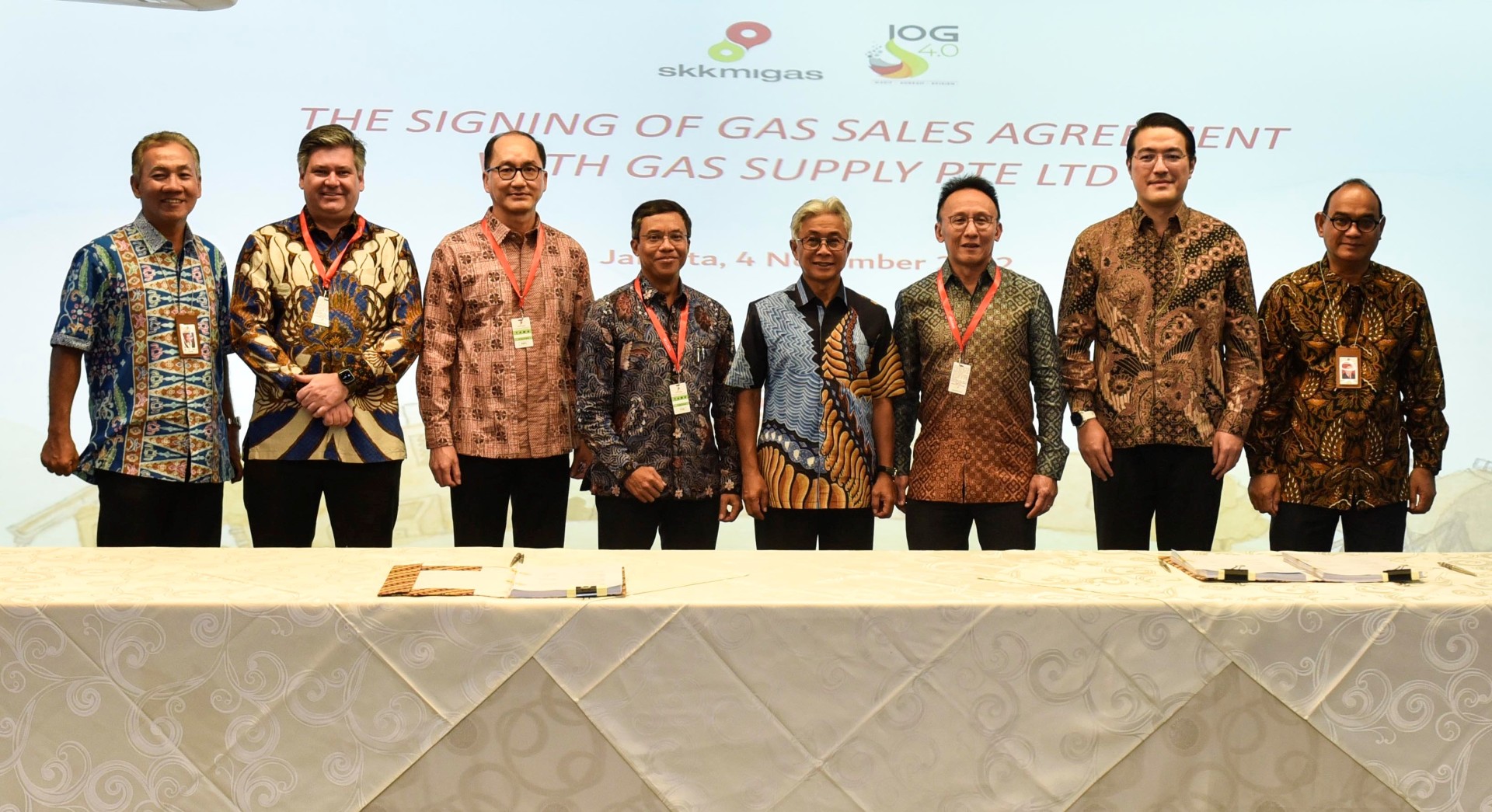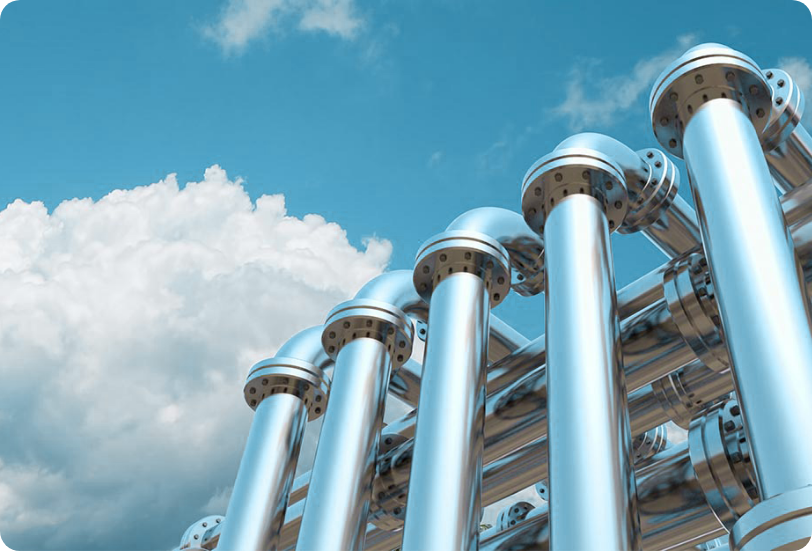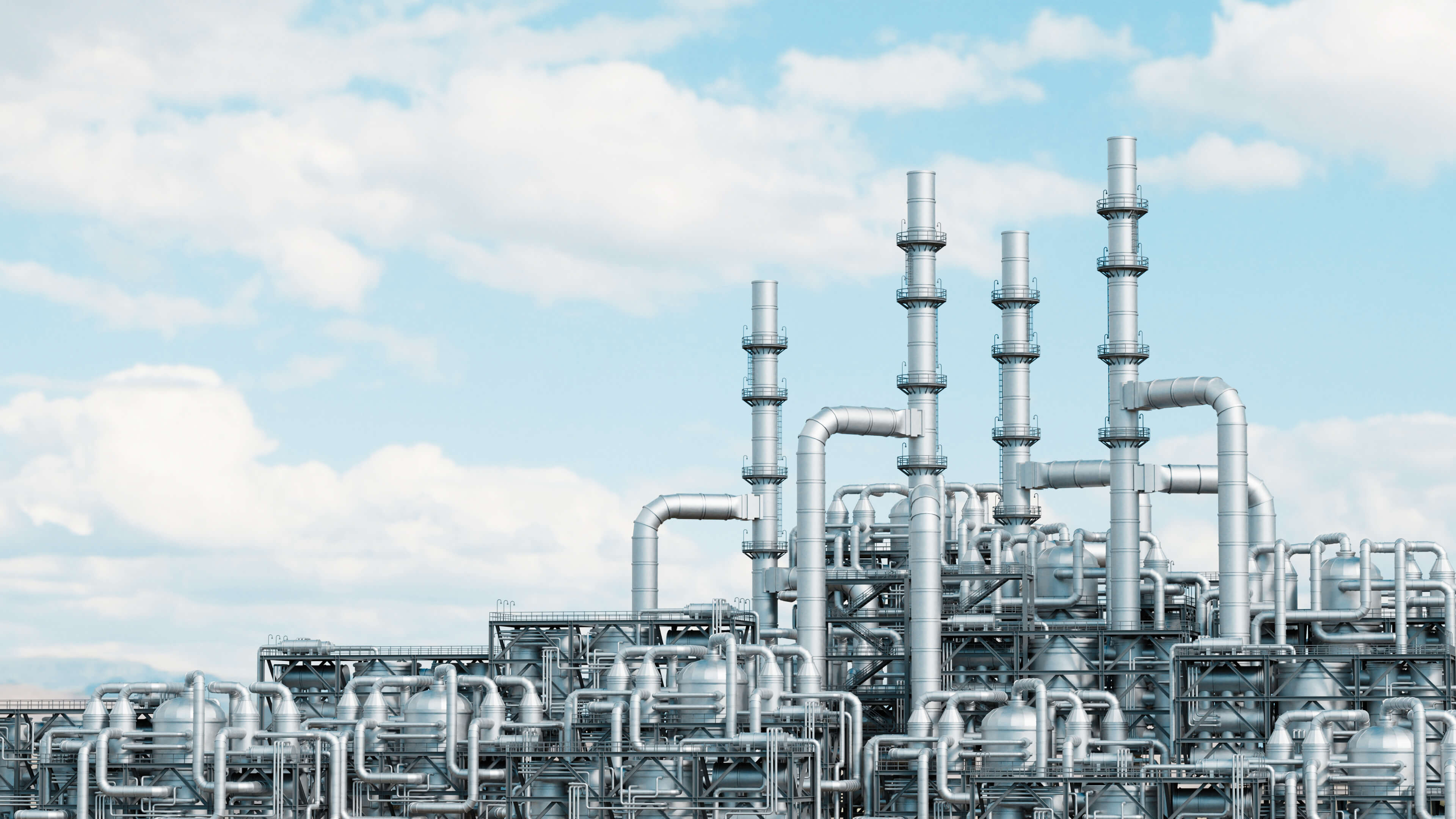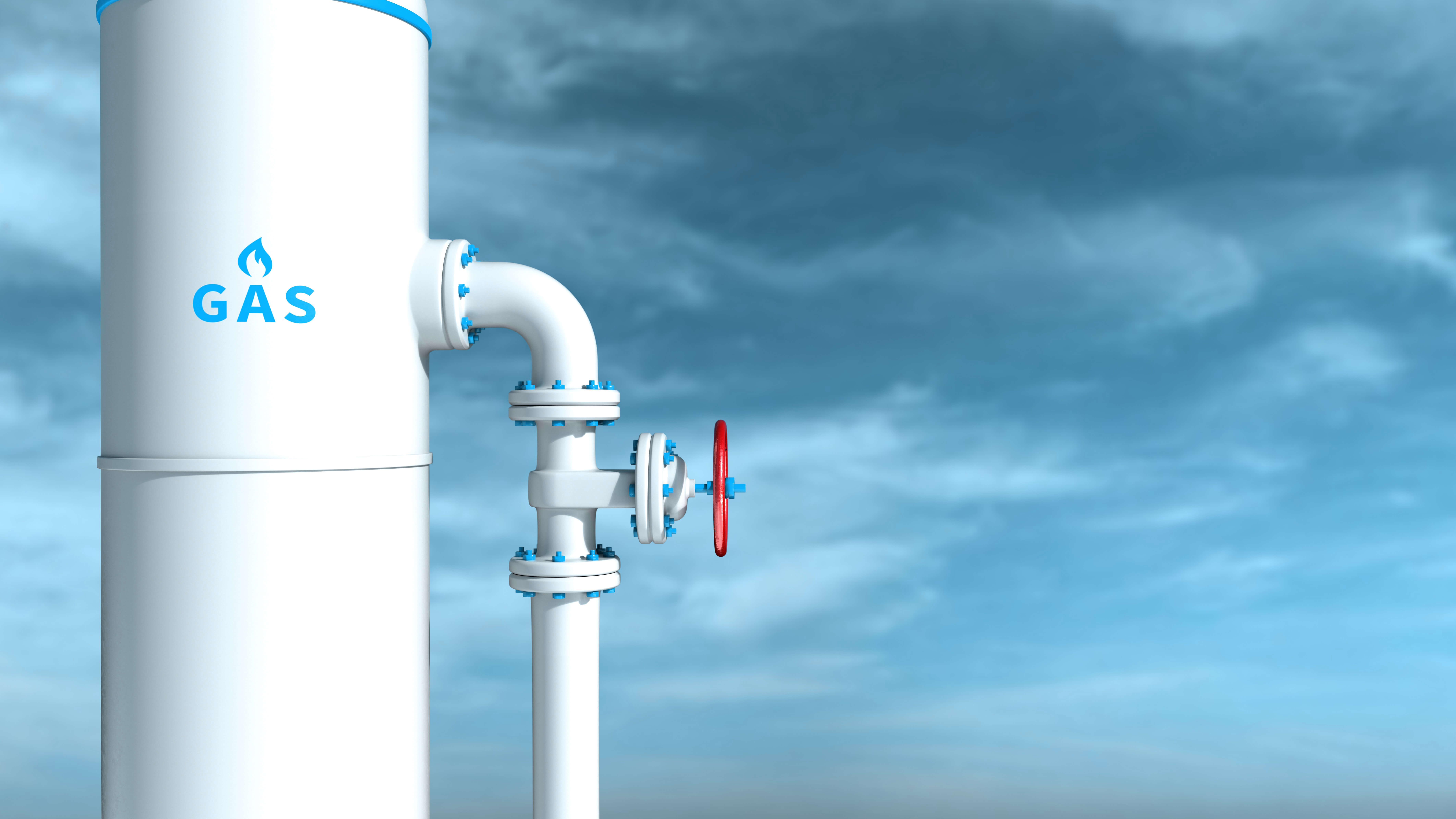


PT Medco Energi Internasional Tbk (MedcoEnergi) through its subsidiary, Medco E&P Grissik Ltd (MEPG) has signed a Gas Sales Agreement (GSA) with Gas Supply Pte Ltd. (GSPL) to continue supplying gas to Singapore from the Corridor PSC, South Sumatra. The GSA will be effective from August 2023 and valid for five years. The GSA was signed by Director of MEPG Ronald Gunawan and Chief Executive Officer of GSPL Alan Heng, witnessed by the Head of SKK Migas Dwi Soetjipto, on Friday (4/11).
President Director of MedcoEnergi, Hilmi Panigoro said, “We are grateful for the continuous support from the Government of Indonesia for the gas supply allocation approval for the Corridor PSC to GSPL. Following the acquisition of the Corridor PSC we believe we can continue to supply gas to meet both domestic and international demand.”
GSPL’s CEO Mr Alan Heng said, “We are delighted to be in Jakarta today to sign the GSA extension with our Indonesian counterparts. Since 2003, the GSA has been mutually beneficial for both Singapore and Indonesia. This GSA extension is a culmination of the strong trust and relationship built over two decades and the continued confidence in Singapore customers. With the GSA extension, GSPL will continue to meet our customers’ gas needs reliably. I look forward to continuing working with our Indonesian counterparts to deepen our energy cooperation.”


In Singapore, electricity will increasingly be generated from gas-fired combined cycle power plants, as these are more efficient than oil-fired steam plants. Today, about 60% of Singapore's electricity demand is generated from natural gas. Currently, 150 million standard cubic feet per day (mmscfd) of natural gas from Malaysia, 325 mmscfd from West Natuna and 350 mmscfd from South Sumatra is contracted to Singapore via pipeline to meet our gas demand.
To further diversify our sources of natural gas, Energy Market Authority (EMA) will be conducting a feasibility study on the import of Liquefied Natural Gas (LNG) to Singapore. The study will evaluate the business, financial and technical aspects of LNG import and recommend the most efficient and cost effective method. The study will also identify suitable site(s) for the LNG terminal. The study is expected to be completed within 12 months. A LNG terminal which is required for the import of LNG would take 67 years to build.
Pre-Qualification Tender
The EMA invites firms to submit their applications for Pre-Qualification Tender to carry out a Feasibility Study on Import of Liquefied Natural Gas. The Pre-Qualification Tender will identify firms which have the capability and experience to carry out the study. The criteria for qualification are spelt out in the Pre-Qualification Tender Document. Firms which are shortlisted in the Pre-Qualification stage would be invited to submit their tender proposals at the next stage.
The Pre-Qualification Tender Document is available on both EMA's website; and the Government's procurement portal, GeBIZ, starting 30 July 2004, Friday, 9:00am.
Closing date for submission of application for Pre-Qualification Tender is 27 August 2004, Friday, 11:00am.


Mr Timothy Chia,
RADM (Ret) Kwek Siew Jin,
Distinguished Guests,
Ladies and Gentlemen
It is both a pleasure and an honour to officiate at this Ground Breaking Ceremony. My heartiest congratulations to PowerGas for the commencement of works on this natural gas receiving and metering station at Sakra.
Investment in Singapore’s Gas Infrastructure
This natural gas station may not be the first in Singapore, but it is nonetheless an important part of the new infrastructure that PowerGas has invested in to ensure greater reliability, quality and efficiency of the gas transportation system. Here the imported gas from South Sumatra will be metered and analysed to confirm compliance with specifications, filtered, and pressure regulated, and finally injected into Singapore's gas transmission network. This $22 million facility will be completed by the 2nd quarter of 2003, in time for commissioning in August 2003.
Natural Gas
Natural gas is the cleanest energy source available today. Currently, about 90% of the imported natural gas is for the generation of power. Increasingly, generation companies are employing
technologies such as combined-cycle gas turbine (CCGT) technology which utilise natural gas. Almost 40% of electricity demand in Singapore is met by CCGT technology. We expect this to increase
to 50% by 2004. The demand for natural gas will increase in tandem with growth in electricity consumption and alternative uses. There will be many exciting opportunities ahead for the gas industry.
How Natural Gas Can Benefit Singapore
Natural gas will benefit industries and households alike. It has the potential to enhance our industries' competitiveness, and also improve the quality of life of Singaporeans in general.
Natural gas will allow our power gencos to produce electricity more cheaply. For example, in January this year, the Energy Market Authority had reduced the price cap on some of our larger
gencos to reflect the contributions of the more efficient gas-fired plants. This translated into a 6% reduction in electricity prices.
Natural gas can contribute to lowering costs for companies in other ways. For instance, it can be used for district cooling. Industries and offices located in close proximity can share centralised cooling facilities, and this would be cheaper than if the buildings were to be individually cooled.
There are environmental benefits as well. We have begun to do trial runs for compressed natural gas (CNG) vehicles in our public transport fleet, such as CNG taxis and buses. If these trials prove successful, it will pave the way for green vehicles to be introduced on our roads, which will be more friendly for our environment.
Import of Natural Gas into Singapore and Bilateral Relations
I would like to commend PowerGas for their crucial role in the provision of reliable and safe gas transportation of piped gas supplies to all sectors of Singapore. I would also like to note the contribution of Development Resources Pte Ltd, a local consultant, as PowerGas' specialist engineering consultant for this Sakra Natural Gas Station project, as well as Sumitomo Metals Industries Ltd, which is the project's building contractor and has extensive experience in energy infrastructure.
I would also like to acknowledge the strong bilateral relationships that have been built up between Singapore and Indonesia over the years. Our gas deals with Indonesia will help enhance security of supply for our energy requirements and also bring economic benefit to Singapore. They are made possible by the warm relationship enjoyed by the two countries at both the governmental and the private sector levels. Resulting from these deals, jobs have been created in both countries for the construction, operation, and maintenance of these facilities. I am certain that through the course of implementing these contracts, there would be much mutual learning and co-operation. These pipelines between Singapore and Indonesia will contribute to the realisation of the TransASEAN Gas Pipeline, which will one day link up gas buyers and sellers all over ASEAN. This is a laudable project which we hope will enjoy good public-private sector partnership and be successfully completed in time.
Conclusion
On this happy note, it is my pleasure now to initiate the commencement of works on the Sakra Natural Gas Station.


City Gas Pte Ltd (“City Gas”) was formed as a subsidiary of PowerGas Ltd (“PowerGas”) to take over the production of town gas and retail of piped gas to all of PowerGas' domestic, commercial and industrial customers. City Gas will also oversee the production of town gas at Senoko Gasworks. PowerGas has transferred City Gas to Temasek Holdings (Private) Limited on 2 Jan 2002.
Existing customers of PowerGas are assured that their piped gas supply will not be affected by this exercise. City Gas, now a Temasek subsidiary, will continue to service and fulfill all existing contractual and commercial obligations which customers have with PowerGas. City Gas will continue to maintain and further improve the customer service levels that PowerGas has established through the years.
City Gas will have no lack of experienced staff as all the sales and marketing staff, customer service personnel and production workers of PowerGas have been transferred to City Gas. Customers will still be billed for their gas consumption by Power Supply Ltd. This ensures that customers enjoy the same level of customer service as before. City Gas also operates and manages both the 24-hour Customer Service Centre (CSC) and Gas Installation and Application Unit (GIAU). The telephone numbers remain unchanged. Customers who wish to apply for gas installation appointments can call 1800-736-2080, while those who require maintenance and repair services can continue to call CSC at 1800-752-1800 for assistance.
PowerGas will henceforth undertake the role of the sole gas transporter and gas system operator in Singapore. PowerGas will thus focus on being a key infrastructure provider in the Singapore energy market, maintaining the reliability, safety and quality of the gas transportation and distribution network. As the gas transportation business is a natural monopoly, PowerGas will continue to be price-regulated by the Energy Market Authority of Singapore.
The transfer of City Gas from PowerGas to Temasek Holdings is part of the re-structuring of the gas industry currently undertaken by the Government to encourage competition in the industry. In addition to City Gas, PowerGas has also divested Gas Supply Pte Ltd to Temasek Holdings. Gas Supply Pte Ltd had signed the gas deal with Pertamina in February 2001 for the import of natural gas from Sumatra.


Singapore Power Limited (SP), through its subsidiary PowerGas Ltd and PERTAMINA signed a gas sales agreement with PERTAMINA, Indonesia for the supply of natural gas to Singapore from the year 2003. Agreement was signed in the presence of Brigadier General (NS) George Yeo, Minister for Trade & Industry, Singapore and Mr Purnomo Yusgiantoro, Minister for Energy and Mineral Resources for Indonesia. Also present were Mr Lim Swee Say, Acting Minister for the Environment, Singapore, Mr Ng Kee Choe, Chairman, Singapore Power, Brigadier General (NS) Boey Tak Hap, President & CEO, Singapore Power and Mr Timothy Chia, Chairman, PowerGas.
The gas sales agreement is for the supply of a contract quantity of 2.27 trillion standard cubic feet (TSCF) of natural gas to Singapore from the gas fields in South Sumatra, Indonesia. 150 million standard cubic feet (MMscfd) will be supplied initially on a daily basis with the volume being increased to 350 MMscfd by the year 2009. The US$9 billion contract is valid for a period of 20 years commencing 2003 with a provision for further extension should both parties so require.
The gas supply will be piped through a 500km high-pressure pipeline originating from the Grissik Gas Plant, passing through the Jabung Block en route to Batam and onward to Singapore. The gas transporter is PT, Perusahaan Gas Negara (PGN). The gas fields in South Sumatra in the Corridor Block and South Jambi 'B' Block are operated by Gulf Indonesia Resources Ltd and those at the Jabung Block are operated by Santa Fe Energy Resources (Jabung) Ltd.
Through its wholly-owned subsidiary Gas Supply Pte Ltd, PowerGas will import natural gas to Singapore with the first delivery of gas expected around mid-2003.
On the sealing of the deal, Mr Ng Kee Choe, Chairman of Singapore Power said, "The signing of the Gas Sales agreement marks the culmination of 3 years of negotiations between Pertamina and Singapore Power. In September 1999, when we signed the Letter of Agreement for the supply of natural gas from Sumatra to Singapore, we stated that this would be a win-win collaborative effort by all parties involved. The signing ceremony today is a major milestone and a big step forward in that effort. We have every confidence that the Letter of Agreement will be fulfilled to the benefit of all parties involved."
Brigadier General (NS) Boey Tak Hap, President & CEO of Singapore Power said, "The conclusion of the gas deal signifies the beginning of a mutually beneficial relationship between Singapore Power and PERTAMINA. It will yield long term economic benefits for both Indonesia and Singapore. For Singapore, the import of more natural gas will promote competition in the electricity and gas industries. With the liberalisation of the electricity industry, more combined cycle gas turbine power plants will be built to meet the growing demand of electricity in Singapore. The use of more natural gas which is a clean fuel will also help to reduce pollution and enhance the environment in the region,"
For the supply of natural gas to Singapore for power generation, Gas Supply Pte Ltd has also signed End-User Agreements with Singapore Power’s generation companies, viz PowerSenoko and PowerSeraya.
The gas shall be transported through a new 28-inch pipeline of approximately 500km in length, that will be built by PGN, an Indonesian state gas pipeline company, from Grissik to the Singapore/Indonesian border via Sakernan.
Under the terms of the Co-ordination Agreement; PGN will then link its pipeline with the 28-inch pipeline that PowerGas is constructing and operating from the border to Jurong Island in Singapore. In this way, PowerGas shall then transport the gas on behalf of the Buyer to its final destination.




